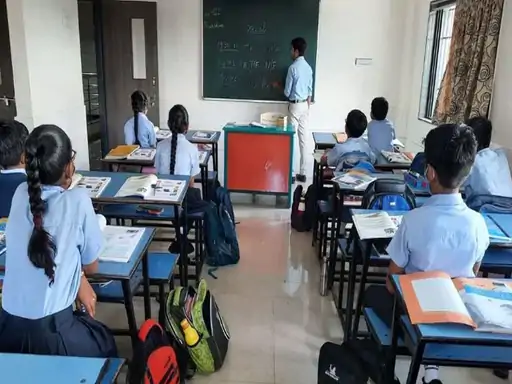In the vibrant landscape of Gujarat, where culture meets progress, the Samagra Shiksha Abhiyan (SSA) is more than just an educational initiative; it’s a beacon of hope and transformation. Picture a classroom buzzing with energy, children laughing, and teachers passionately engaged in teaching. But what fuels this dynamic environment? The answer lies in accountability.
Accountability in SSA Gujarat is not merely a concept—it’s a driving force that ensures programs run efficiently, goals are met, and, most importantly, the children receive quality education. This article delves deep into the critical role accountability plays in SSA Gujarat‘s programs, weaving in stories, statistics, and strategies to show how it shapes the future of education in the state.
Understanding Accountability in Education
What Does Accountability Mean?
Accountability in the context of education refers to the responsibility of stakeholders—including teachers, administrators, and government officials—to ensure that educational standards and outcomes are met. In a broader sense, it involves transparency, evaluation, and the ability to answer for actions taken within educational frameworks.
The Importance of Accountability
Why is accountability so crucial? Simply put, it creates a culture of responsibility. When educators and administrators know they are accountable for student outcomes, they are more likely to strive for excellence. In Gujarat, this mindset is integral to SSA’s approach.
For instance, consider a teacher in a rural school who integrates innovative teaching methods because she knows her performance will be assessed. This accountability not only enhances her teaching skills but also directly benefits her students.
The Framework of SSA Gujarat
Overview of SSA Gujarat
Samagra Shiksha Abhiyan is a comprehensive scheme aimed at improving the quality of education in India. Launched by the Ministry of Education, it combines various educational initiatives into one holistic program.
In Gujarat, SSA focuses on ensuring that every child has access to quality education, especially marginalized groups. But how does accountability fit into this grand vision?
Mechanisms of Accountability
Accountability within SSA Gujarat is enforced through several mechanisms:
- Regular Assessments: Schools undergo regular assessments to evaluate performance. These assessments are crucial in determining whether the educational objectives are being met.
- Community Participation: Parents and local communities play a significant role in holding schools accountable. They are involved in monitoring school activities and outcomes.
- Feedback Systems: SSA Gujarat encourages feedback from various stakeholders, including students, parents, and teachers. This feedback loop helps identify areas for improvement.
The Impact of Accountability on Student Outcomes
Enhancing Learning Environments
When accountability is prioritized, it creates a conducive learning environment. For example, in a village school, the principal implemented a new attendance tracking system that not only monitors student attendance but also encourages teachers to be more present and engaged. The result? A marked improvement in student participation and performance.
Case Study: The Success of a Local School
Let’s take a closer look at a school in rural Gujarat that exemplifies how accountability can transform education.
In this school, the headmaster established a mentorship program for teachers, where experienced educators guided their less experienced colleagues. By setting specific performance goals and regularly reviewing progress, the school saw a significant increase in both teacher effectiveness and student achievement.
This story illustrates how accountability can foster collaboration and drive results.
Challenges to Accountability in SSA Gujarat
Systemic Barriers
While accountability is essential, it’s not without challenges. Systemic barriers, such as inadequate resources, lack of training for teachers, and socio-economic factors, can hinder effective accountability measures.
For instance, in some remote areas, teachers may lack access to training programs that enhance their skills. Without proper support and accountability, these teachers may struggle to meet educational standards.
Addressing Challenges
To address these challenges, SSA Gujarat has implemented targeted training programs for teachers, focusing on skill development and resource allocation. By empowering educators and fostering an environment of accountability, the program aims to overcome these barriers.
Steps to Enhance Accountability in SSA Programs
Implementing Effective Assessment Tools
Using effective assessment tools is crucial for measuring educational outcomes. Schools should adopt both formative and summative assessments that provide comprehensive insights into student learning.
Encouraging Community Engagement
Engaging the community fosters a sense of shared responsibility. Schools should host workshops and meetings where parents can voice concerns and participate in decision-making processes. This involvement not only holds schools accountable but also strengthens community ties.
Continuous Professional Development
Investing in ongoing training and development for teachers is essential. By providing resources and support for professional growth, SSA can enhance accountability and improve teaching practices.
Leveraging Technology
Technology can be a powerful ally in enhancing accountability. Schools can utilize digital platforms for tracking student progress, managing attendance, and facilitating communication among stakeholders.
Establishing Clear Goals and Metrics
Setting clear, measurable goals is vital. Schools should establish specific targets for student performance, teacher development, and resource utilization, allowing for regular evaluation and adjustment of strategies.
Conclusion
As we explore the role of accountability in SSA Gujarat’s programs, it becomes evident that this principle is foundational to achieving educational success. By fostering a culture of responsibility and transparency, SSA empowers educators, engages communities, and ultimately enhances student outcomes.
The journey is ongoing, with challenges to overcome and milestones to achieve. However, with a commitment to accountability, SSA Gujarat is well-positioned to pave the way for a brighter, more educated future for every child in the state.
